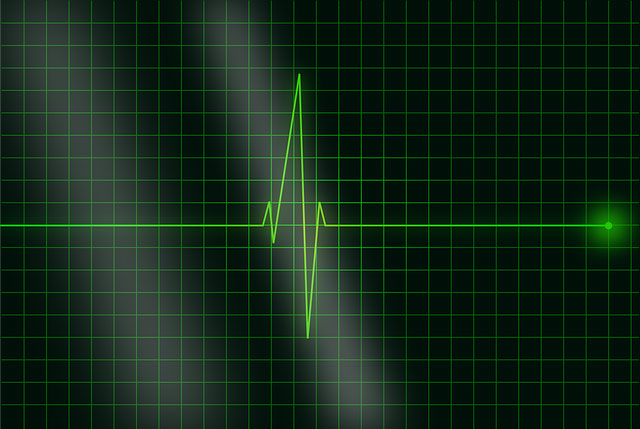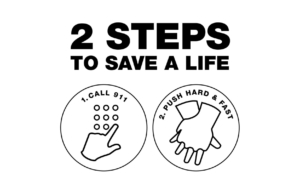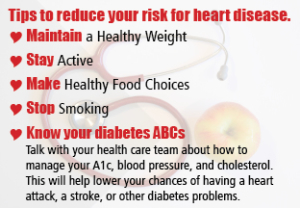Bonners Ferry Living Local February – Time Sensitive Emergency
By Alana Temple, RN, BSN
Boundary Community Hospital Emergency Department

Every year approximately 790,000 Americans suffer a heart attack and for 580,000 it is their primary or first time attack, while 210,000 occur in individuals who have a history of a prior attack. A heart attack, or myocardial infarction occurs when a part of the heart does not receive the correct blood flow. Most cases of heart attack occur due to underlying coronary artery diseases.
It is important to recognize the signs and symptoms of a heart attack so that medical treatment can be obtained, reduce the risk of damage, and help prevent cardiac arrest. The more time that passes before restoring blood flow to the area, the greater the damage and risk for sudden cardiac arrest.
Not everyone will have the same symptoms or the same severity of symptoms. Some may have no symptoms but may just experience sudden cardiac arrest. Symptoms of a heart attack may include chest pain or pressure with or without radiation to one or both arms, jaw pain, pain in the mid back, shortness of breath, dizziness, nausea, vomiting and feeling sweaty or clammy, and pale skin.
 If you, or someone else, is experiencing any of these symptoms, CALL 911 ! Getting medical treatment on the way to the victim is key for survival. In a rural area it is tempting to place the person in a vehicle and rush to the Emergency Room. It is much better and safer to call 911 and get medical treatment headed to the victim. Emergency medical personnel that respond can start treatments as soon as they arrive. They are equipped to perform an electrocardiogram to determine the heart’s rhythm, start an intravenous line to administer medications, draw blood for laboratory testing and, most importantly, they carry an automated external defibrillator (AED) to use if needed to provide a shock to the heart. Calling 911 also alerts the team in the emergency department of the hospital that there is a chest pain call in progress.
If you, or someone else, is experiencing any of these symptoms, CALL 911 ! Getting medical treatment on the way to the victim is key for survival. In a rural area it is tempting to place the person in a vehicle and rush to the Emergency Room. It is much better and safer to call 911 and get medical treatment headed to the victim. Emergency medical personnel that respond can start treatments as soon as they arrive. They are equipped to perform an electrocardiogram to determine the heart’s rhythm, start an intravenous line to administer medications, draw blood for laboratory testing and, most importantly, they carry an automated external defibrillator (AED) to use if needed to provide a shock to the heart. Calling 911 also alerts the team in the emergency department of the hospital that there is a chest pain call in progress.
If you witness a person with sudden cardiac arrest, immediately call 911 and then begin hands only cardiopulmonary resuscitation (CPR). Place your hands in the center of the chest, push fast and hard and do not stop until help arrives. A good way to determine how fast is to think of the song “Staying Alive” and push to the beat. Hands only CPR is CPR without rescue breaths and it has been shown to be as effective as conventional CPR for sudden arrest at home or in the public. According to The American Heart Association 2016 statistics nearly 46 percent of out of hospital cardiac arrest victims survived when bystander CPR was administered.
Unfortunately, only about 45 percent of people in sudden cardiac arrest received bystander CPR. You may fear doing CPR incorrectly or injuring the victim, but please remember that the emergency is that the heart is not beating and the loss of the circulatory system. If in doubt, always call 911 and start CPR, you quite possibly can save a life!
 February is American Heart Health Month and the perfect time to learn your risk for heart disease and the steps to reduce them. Heart disease does not just occur in older adults, it can happen at any age. Some risk factors include high blood pressure, high blood cholesterol, being diabetic and smoking. The biggest part of heart health comes down to making healthy choices. Age and family history cannot be changed but the good news is that modest changes to your diet and lifestyle can improve your heart health and lower your risk by up to 80 percent.
February is American Heart Health Month and the perfect time to learn your risk for heart disease and the steps to reduce them. Heart disease does not just occur in older adults, it can happen at any age. Some risk factors include high blood pressure, high blood cholesterol, being diabetic and smoking. The biggest part of heart health comes down to making healthy choices. Age and family history cannot be changed but the good news is that modest changes to your diet and lifestyle can improve your heart health and lower your risk by up to 80 percent.
###
Boundary Community Hospital has been designated as Level IV Trauma Center and is in the process of being designated as a Level II STEMI Center by the State of Idaho Time Sensitive Emergency Program

For the Ones
/in Press ReleaseHospital Designated Level II STEMI Center and Level III Stroke Center
/in Press Release, Time Sensitive EmergencyHigh on Life – Not Pain Meds
/in Press ReleaseCaring for Your Loved Ones – Close to Home
/in Press ReleaseKeep Doing What You Love
/in Press ReleaseBy Dr. Yahtil Huaute, OT, DOT
Boundary Community Hospital
April is, among many other things, Occupational Therapy Month. Most people have never heard of occupational therapy, or if they have, they assume it has something to do with employment. Occupational therapy was founded over 100 years ago with the idea that hospital patients deserved better treatment and more meaningful lives. It has grown and developed over the years to something pretty amazing. Occupational therapy focuses on getting you back to your life! These can be activities such as taking care of yourself, gardening, playing cards with friends, or any other activity that is important in your life.
Occupational therapists (aka OT) can work with people from birth to death. An OT can work with children in hospitals, outpatient clinics, schools, and homes. They have become notorious for working with children with Autism, so it is no surprise that April is also Autism Awareness Month! They can work with children struggling with development, sensory processing, learning, and so much more. You can often find OTs playing with children and calling it therapy, but children learn through play, so there is no better way to engage them in learning. Occupational therapists are also known for working with sensory processing disorder (SPD), this is when a child’s senses are either over or under responsive to information. SPD happens in approximately 20% of the general population and can be as common as 88% of children with any other diagnosis.
When it comes to the adults, OTs can be seen treating people with shoulder issues, people who have suffered a stroke, had hand surgery, or even for bladder leaks. OT’s can treat adults on an outpatient basis, in hospitals, and in homes. If someone has a hobby or role in life they can no longer do, OTs can help either retrain them to get back to what they love or even teach coping strategies to make the task/hobby easier to do. Adaptations are sometimes the best way to return to what you love, and OTs are amazing at teaching those methods.
Older adults are another group of people that occupational therapy can help. This is seen in hospitals, homes, outpatient clinics, and nursing homes. Whether it is arthritis, lower tolerance to activity, surgery, or illness, many older adults want and need to be able to be self-sufficient as long as possible. It can be depressing to lose the independence we’ve had all our lives, and as much as we love our families and friends, nothing surpasses independence. Overall, maintaining independence is physically and mentally healthier.
Occupational therapists can help you get back to living the life you want to live; doing the activities you want to do. This therapy is based on your needs and desires first and foremost. So when someone says, “I am an occupational therapist!” you can now tell them you know a bit about what they do. Happy Occupational Therapy Month and Autism Awareness Month everyone!
###
Yahtil Huaute, OT, DOT is the Occupational Therapist at Boundary Community Hospital.
Making Your Wishes Known
/in Press ReleaseBy: Tari Yourzek, RN, BSN
Chief Nursing Officer, Boundary Community Hospital
National Healthcare Decisions Day is April 16, 2019
While making healthcare decisions is often difficult in the best of circumstances, making decisions for others is even more complicated. Each of us has the ability to guide our healthcare providers and our loved ones about what we want. Advance Directives give you the ability to document the types of healthcare you do and do not want, and to name an “agent” to speak for you if you cannot speak for yourself.
Do you have Advance Directives on file with your physician and/or the Hospital? Boundary Community Hospital staff want to be sure your wishes are known if the need arises. Advance Directives are documents that state your choices about medical treatment, or name someone to make decisions about your medical treatment, if you are unable to make those decisions yourself. They are called “Advance” Directives because they are signed in advance, to let your doctor and other health care providers know your wishes concerning your medical care. Visit the Advance Directives booth at the Hospital’s Annual Health Fair on May 11, 2019 and talk with healthcare professionals about the importance of advance directives and pick up a copy of “Idaho Advance Directives, Legal Documents to Assure Future Health Care Choices.”
An important part of your advance directives is considering organ and tissue donation which can save lives in our community. When people are asked about registering to donate, they often think of organ donation. Many don’t know what tissue donation is or that it is just as life-changing.
Just one tissue donor can enhance more than 150 lives, providing hope to the estimated one in 20 Americans who will need some type of tissue transplant in their lifetime. Local organizations like LifeNet Health, a full-service tissue bank, help recover and prepare donor tissues for transplantation and ensure they get to those in need.
Donated tissue implants, called allografts, can be used to repair injuries to bone as well as a range of damaged tissue such as tendons, ligaments, skin and more. They can also come in the form of a life-saving heart valve or grafts for post-mastectomy reconstruction for breast cancer patients.
Many people are registered donors, as demonstrated by the red heart on their driver’s license, and it’s important to understand that tissue donation is part of that. By educating families on the donation process, the hope is that even more people will be able to donate, providing critical allografts for patients within our community.
According to the California Healthcare Foundation (2012), 80% of people say that if seriously ill, they would want to talk to their doctor about wishes for medical treatment toward the end of their life. 82% of people say it’s important to put their wishes in writing. 23% have actually done it.
Discover the Health Fair Advantage and find out more about healthcare options in Boundary County at the Annual BCH Health Fair from 9 am to Noon on May 11th.
Welcome Pain Clinic to Bonners Ferry
/in Press ReleaseFebruary 22, 2019
Bonners Ferry, ID – Boundary Community Hospital welcomes Idaho Pain Clinic as a Specialist Provider Clinic in Bonners Ferry. J. Sorin Ispirescu, MD, Clinton Thome, MD, A. Cipriana Niculaescu, PA-C, and Magda Sneddon, NP-C will be seeing patients on Thursdays in Outpatient Services at the Hospital.
According to Clinic Manager Kayley Zilinskas, “Idaho Pain Clinic understands the unique circumstances of each patient and their needs. We offer the most advanced treatment options in pain management and are committed to providing the highest level of care to our Boundary County patients.”
Contact Idaho Pain Clinic at 208-263-9757 to make an appointment, right here in Bonners Ferry.
For more information: www.boundarycommunityhospital.org/outpatient/pain-clinic
A Heartfelt Thank You
/in FoundationFebruary 28, 2019
With grateful hearts, the Fry Healthcare Foundation Board of Directors is ecstatic to announce that this year’s Festival of Hearts gala raised over $37,000! This will allow them to purchase four Spacelabs QUB Heart Monitors for Boundary Community Hospital Emergency/Acute Care as well as the Fund-an-Item Blood Bank Refrigerator designated for use by the Hospital’s Laboratory.
The elegant atmosphere coupled with the delicious food prepared by the master chefs at the Kootenai River Inn made for a delightful event. Teresa and Brian Rae joined forces as emcee and auctioneer, extracting high amounts for the auction items while keeping the event fun and relaxed. According to Teresa Rae, Vice President of Fry Healthcare Foundation, “We are pleased to be able to provide this special event at a time of year when people in Boundary County want to get together and celebrate. The dinner and auction format seems to be just right, and we are humbled by our community’s generosity.”
The Dessert Dash was again a rousing success this year, doubling last year’s proceeds by raising a whopping $8,409! “The Tower of Chocolate Cake donated by Kootenai River Inn went for $2,000, and two other desserts went for over $1,000 each. Tables pool their resources to be able to pick first from the 15 spectacular desserts, and this single event has proven to be not only a money-maker for Fry, but also an event that attendees look forward to and strategize over,” provided Teresa Rae. It is a fun way for everyone at the event to participate and share desserts, with many individuals leaving with yummy leftover boxes to enjoy at home. A special thank you to the restaurants and individuals who created the beautiful and delicious dessert array.
During the event, many of the attendees raised their paddles as part of the Fund-an-Item bidding in order to raise money to purchase a Blood Bank Refrigerator for the Laboratory. In a time-sensitive emergency, the Hospital needs to have a ready supply of blood, and this new refrigerator will have all of the latest temperature controls and alarms in order to allow the hospital to provide the best possible service in this area.
The Fry Healthcare Foundation and our community have raised $1.25 Million to benefit the hospital over the past 21 years. A heartfelt thank you to everyone in the community for your continued support of the Foundation and its fundraising efforts on behalf of Boundary Community Hospital. Please join us at the next Fry Healthcare Foundation event which will be the Tenth Annual Golf Tournament at Mirror Lake Golf Course on September 6, 2019. Again, thank you to all who donated and attended this great event!
Auxiliary Pie Sale 2019 A Success
/in Press ReleaseFebruary 21, 2019
Bonners Ferry, ID – Thank you to everyone who donated or purchased pies at the famous Boundary Community Hospital Auxiliary Pie Sale on Thursday, February 21. The fifty six pies were sold out by Noon and the Auxiliary raised over $1,100.
A special thank you to Chic-n-Chop, Safeway, Super1, Soul Shine Bistro, multiple local churches, and Hospital employees. Hospital staff purchased 27 pies and desserts from the event, some of them shared with their co-workers. We appreciated folks stopping by for a piece of pie and a cup of coffee, including Sheriff Kramer and several Hospital Trustees, so we could visit with them and catch up on County news. And thank you to Dr. Roland Hall from Bonners Ferry Veterinary Clinic for purchasing the last pie of the day!
Over the past year, monies raised through the annual pie sale and Hospital soda pop sales have been used to purchase two-way radios for the nursing staff in the Extended Care Facility; rolling stools and stainless steel instrument table for Surgery; isolation room door caddies and hangers; patient scale with handles for Boundary Community Clinics; and a commercial grade vacuum for Housekeeping.
The Hospital Auxiliary, started in 1954 originally to assist at the Hospital, is seeking new active members to join the group. If you are interested, please come to the next meeting on March 12 at 11:30 a.m. at Chic-N-Chop. Women and men are welcome.
Amy Andersen, Irene Rice, Claudia Reno, Edna Eby, and Jan Weaver show off this year’s pie selections.
When Your Life Is On The Line
/in Press ReleaseBonners Ferry Living Local February – Time Sensitive Emergency
By Alana Temple, RN, BSN
Boundary Community Hospital Emergency Department
Every year approximately 790,000 Americans suffer a heart attack and for 580,000 it is their primary or first time attack, while 210,000 occur in individuals who have a history of a prior attack. A heart attack, or myocardial infarction occurs when a part of the heart does not receive the correct blood flow. Most cases of heart attack occur due to underlying coronary artery diseases.
It is important to recognize the signs and symptoms of a heart attack so that medical treatment can be obtained, reduce the risk of damage, and help prevent cardiac arrest. The more time that passes before restoring blood flow to the area, the greater the damage and risk for sudden cardiac arrest.
Not everyone will have the same symptoms or the same severity of symptoms. Some may have no symptoms but may just experience sudden cardiac arrest. Symptoms of a heart attack may include chest pain or pressure with or without radiation to one or both arms, jaw pain, pain in the mid back, shortness of breath, dizziness, nausea, vomiting and feeling sweaty or clammy, and pale skin.
If you witness a person with sudden cardiac arrest, immediately call 911 and then begin hands only cardiopulmonary resuscitation (CPR). Place your hands in the center of the chest, push fast and hard and do not stop until help arrives. A good way to determine how fast is to think of the song “Staying Alive” and push to the beat. Hands only CPR is CPR without rescue breaths and it has been shown to be as effective as conventional CPR for sudden arrest at home or in the public. According to The American Heart Association 2016 statistics nearly 46 percent of out of hospital cardiac arrest victims survived when bystander CPR was administered.
Unfortunately, only about 45 percent of people in sudden cardiac arrest received bystander CPR. You may fear doing CPR incorrectly or injuring the victim, but please remember that the emergency is that the heart is not beating and the loss of the circulatory system. If in doubt, always call 911 and start CPR, you quite possibly can save a life!
###
Boundary Community Hospital has been designated as Level IV Trauma Center and is in the process of being designated as a Level II STEMI Center by the State of Idaho Time Sensitive Emergency Program